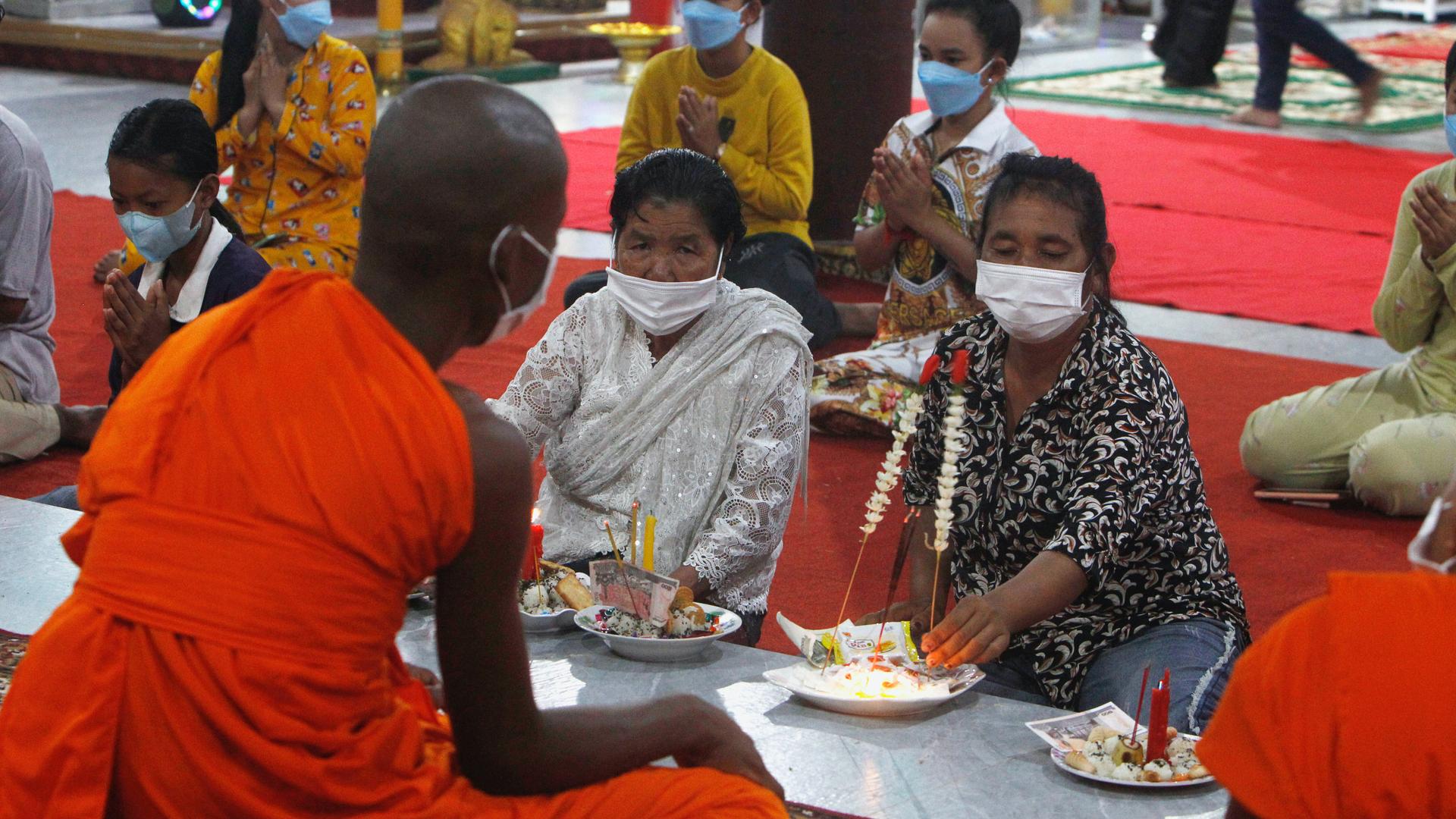Cambodia’s strongman government is seldom acclaimed, at least in the West, where the country’s leaders are frequently denounced for dysfunction, corruption and crackdowns on dissent.
But by any measure, Cambodia’s COVID-19 vaccination program has been a major success. More than 98% of all Cambodian adults have been jabbed at least once. Full vaccination is at 65% of the population and rising; Cambodia’s capital of Phnom Penh may be the most COVID-19-inoculated capital city in the world.
Related: French Polynesia and New Caledonia see deadly COVID-19 surge
The country’s gross domestic product is smaller than the economy of Huntsville, Alabama. And yet, Cambodia’s 15 million population is, when it comes to vaccinations, far ahead of US states such as Alabama, Texas and Ohio. Its full vaccination rate is on par with that of New York state.
“For a small, poor country, Cambodia is up there with some of the most successful countries on Earth. There’s a lot of good news here.”
“For a small, poor country, Cambodia is up there with some of the most successful countries on Earth,” said Virak Ou, president of Future Forum, an independent policy research center in Phnom Penh. “There’s a lot of good news here.”
In short, by hitching its star to China. Cambodia’s authoritarian premier Hun Sen — the longest-serving prime minister alive — threw his support behind Chinese leader Xi Jinping when others did not.
In February 2020, when much of the world was panicking about the mysterious virus coming from China, Hun Sen flew straight to Beijing. They rolled out the red carpet; it was the first post-COVID-19 visit by a head of state. Hun Sen promised to stick by China during “weal and woe.” At 69, he even volunteered to go to Wuhan — the pandemic’s epicenter.
Related: With rising overdoses, British Columbia expands experimental prescription initiative
That did not end up happening. But the message was clear: China, we got your back. When China developed vaccines, Cambodia was one of the first foreign countries to receive them — and in great numbers.
Nor did Hun Sen wait until the World Health Organization certified Chinese vaccines such as Sinovac; he took Xi’s word that they were safe and started inoculating his citizens right away.
“A bold decision, to say the least. But betting on China … seems to have paid off.”
“A bold decision, to say the least,” Virak Ou said. “But betting on China … seems to have paid off.”
Cambodia has, as recently as 2010, received more than half of its budget from foreign donors, including the US. But the past decade has seen a sharp turn in favor of China versus America and other Western donors, which have long promised to uplift Cambodia, while also condemning the government’s autocratic nature. Beijing offers assistance without scorn.
Since the COVID-19 pandemic hit, the US has sent only 1 million vaccines to Cambodia (all Johnson & Johnson). COVAX, the World Health Organization’s partner in supplying vaccines to less-affluent countries, has sent fewer than 350,000 vaccines. (The WHO ignored repeated requests for comment from The World.)
Combined, these vaccines would not even inoculate Cambodia’s capital. China, meanwhile, has showered Cambodia — its “all-weather friend,” Xi said — with 27 million vaccines.
Virak Ou, the policy analyst, is not surprised that the West has lent so little attention to Cambodia’s success story.
“The West doesn’t want this to be the case. It’s one of those stories they don’t want to discuss as the highest levels,” he said. “Who wants to prove a China model is a successful model in times of rivalry?”
He said it would be healthier for the world to “have an honest discussion in assessing the goods, the bads and the uglies of Cambodia and other countries in the region … but I doubt that will take place.”
Cambodia’s government would like to lead Asia in vaccinations. It is aiming for more than 90% of the population fully vaccinated — and that goal may be within reach. As the United States debates jabbing young children, Cambodia last week started inoculating children as young as 6.
